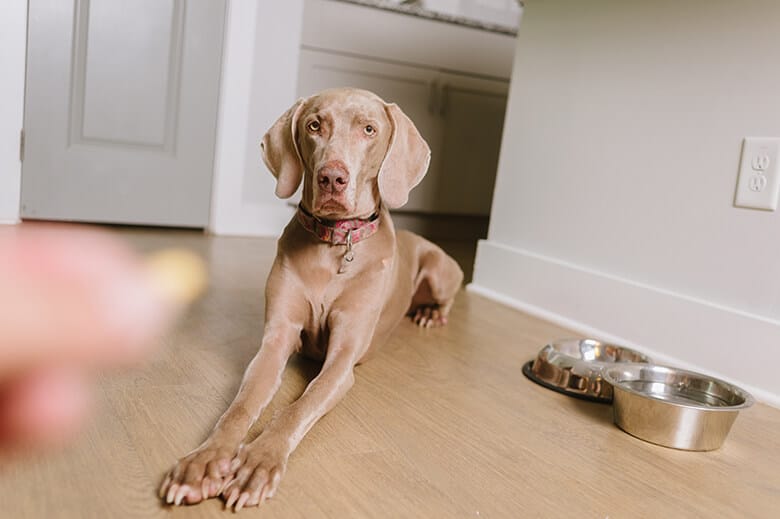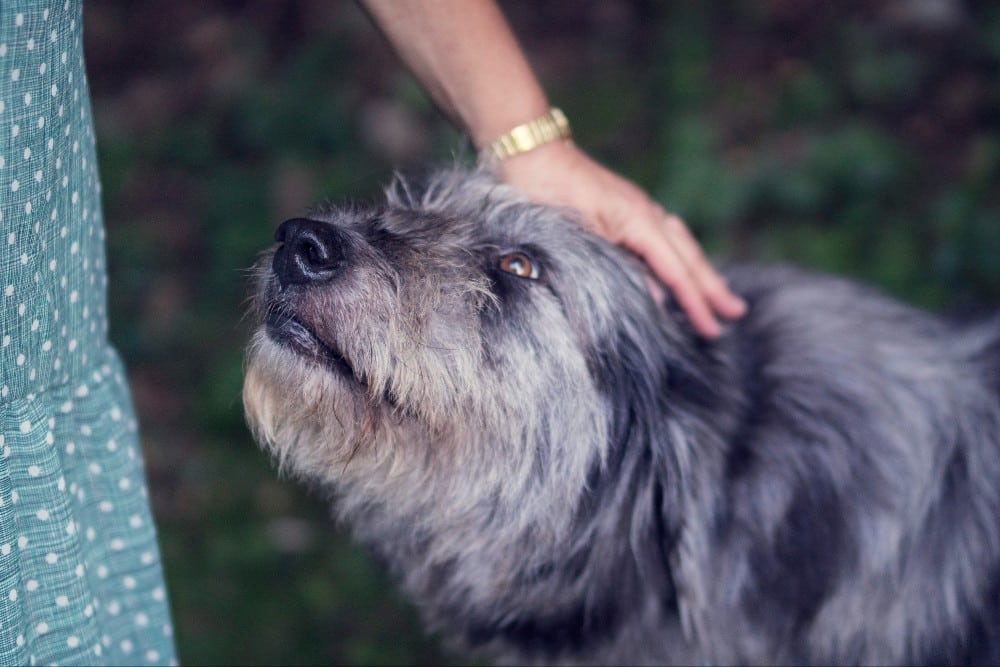If your dog has allergies, it’s hard to watch her suffer, whether it’s sneezing, scratching, coughing, or licking her skin until it bleeds.
While you should never give your dog a human medicine without consulting your veterinarian, the good news is that there’s something you may have in your medicine cabinet that is safe and can help.
“Benadryl is a helpful medication that an owner can utilize at home for allergy symptoms,” says Dr. Jim D Carlson, holistic veterinarian and owner of Riverside Animal Clinic.
Benadryl is the brand name for the active ingredient diphenhydramine HCL. It’s an antihistamine that works by blocking the body’s histamine receptors; histamine is a chemical found in some cells that cause immune responses manifesting as allergic reactions, such as a runny nose, watery eyes, wheezing, or sneezing.
Related: Our Favorite Products to Help Dogs Who Suffer From Summer Allergies
But before giving your dog Benadryl, check the label. “Benadryl is often mixed with other medications that may not be safe for your dog so read the product label closely, and talk to your veterinarian before giving your dog any new medication,” says Dr. Jennifer Coates, a veterinarian on the Board of Advisors of Pet Life Today.
What Does Benadryl Treat?
Benadryl is used to treat mild to moderate allergies in dogs, including seasonal allergies (trees, grass, and pollen), food allergies, environmental allergies (dust, dust mites, mold, and household substances), and even snake and bug bites.
Benadryl can help relieve the following symptoms:
- Itching
- Scratching and biting
- Hives
- Swelling and inflamed skin
- Hair loss or increased shedding due to allergies
- Excessive licking of skin and paws
- Redness and/or swelling
- Runny nose and eyes
- Coughing
- Sneezing
Because one of the side effects of Benadryl is drowsiness, it can also be used to treat mild to moderate anxiety in dogs, particularly in dogs that have travel anxiety, as well as relieving motion sickness.
Related: Here’s What Is in Dog Food That Causes Allergies — and What to Do About It
How Much Benadryl Can I Give My Dog?
Before giving your dog Benadryl, check with your veterinarian, says Dr. Carlson. “Like any medication, if you are using it on your own you should tell you veterinarian to avoid medication interference and also because there are some medications that work better than Benadryl for your pet’s symptoms.”
If your vet gives the go-ahead, (or your dog is having a bad allergic reaction at a time when your vet is away), there’s a basic dosage formula.
Both Dr. Coates and Dr. Carlson say that the typical dose is 1 milligram per pound body weight. However, “this may not be appropriate for all dogs including those with glaucoma, some types of heart disease, or high blood pressure,” says Dr. Coates. Benadryl is also not recommended for dogs that have hyperthyroidism, prostate enlargement, depression, or in the case of pregnancy.
You can compute the correct amount for pills and liquid Benadryl by putting your dog’s weight here. You can give Benadryl every 8 to 12 hours, or two to three times daily. In the case of a snake or insect bite, the dose can be as much as 2mg per pound, but again check with your veterinarian first.
Side Effects
Dogs may appear a little spaced out or drowsy after taking Benadryl. It also “has side effects including: urinary retention, lethargy and drowsiness,” says Dr. Carlson. “It can also impact your pet’s GI system causing vomiting, diarrhea and a rapid heartbeat.”
Some of these symptoms, including rapid heartbeat and severe allergic reactions such as intense itching, difficulty breathing, and hives, may constitute a medical emergency, but this is a very rare complication.
Another serious side effect is an overdose. If you think you’ve given your dog an overdose (or your dog has raided your medicine cabinet), look for these symptoms:
- Muscle tremors
- A rapid or irregular heartbeat
- Breathing difficulties
- Extreme fatigue
- Confusion
- High temperature
- Seizures
- Unusual circling
If your dog exhibits these symptoms, take your dog immediately to an emergency animal hospital, or call the ASPCA poison control hotline on (888) 426-4435.
The above article is meant to be informative and should not be a substitute for medical advice.



















